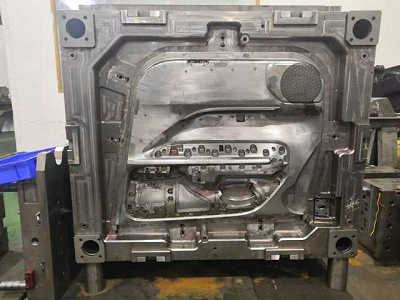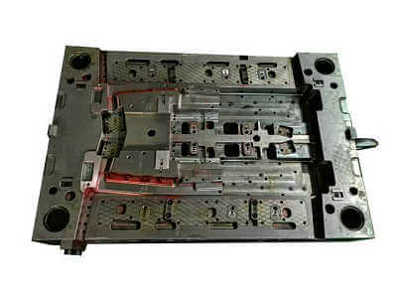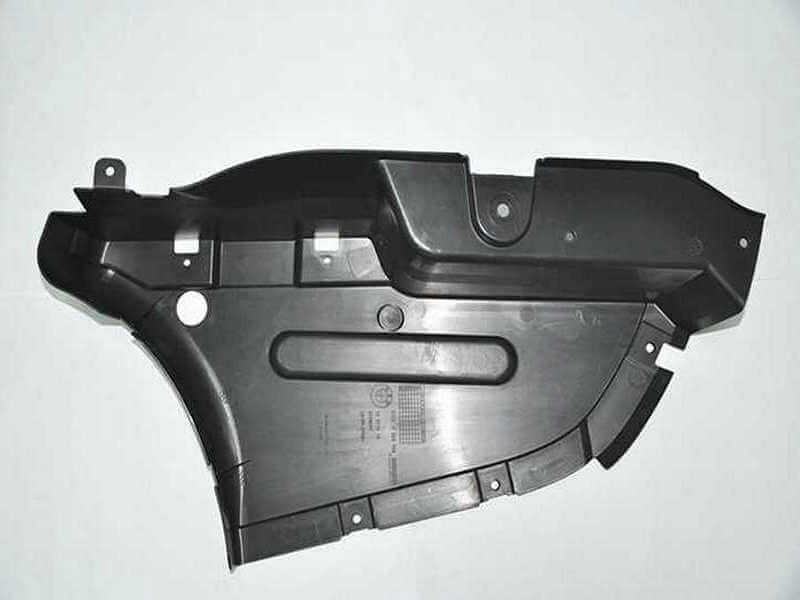Automotive Mold – automotive injection molding Suppliers
Automotive injection molding parts is one of the most important parts to an automobile; If you are a lover of automobiles then you must know that one of the distinguishing qualities of various cars available today is their shape and size. In a simpler word, when you consider an automobile, you put into consideration the quality of material used in making the body as a whole and even the individual parts. That automobile supplier continually needs injection molding automotive plastic parts for each new model of the cars
There are many type of automotive injection molding parts that need plastic injection molding process, below there will be some of automotive injection molds.

Automotive mould
Air Conditioning Automotive injection molding
Air conditioning automotive injection molding is the process of creating plastic components and parts for automotive air conditioning systems using injection molding technology. These components can include various parts of the air conditioning system, such as ducts, vents, and housing units.
The plastic materials used for air conditioning automotive injection molding are typically high-performance engineering plastics, such as ABS, PC, or PC/ABS blends, that are known for their high strength, heat resistance, and dimensional stability.
The process of air conditioning automotive injection molding typically involves the following steps:
- Mold design: A mold designer creates a design that meets the specific requirements of the air conditioning component, considering factors such as shape, size, and tolerances.
- Mold fabrication: The mold is fabricated using advanced CNC machining technology, ensuring high precision and accuracy, including intricate features such as thin walls, ribs, and inserts.
- Injection molding: The mold is mounted onto an injection molding machine, and molten plastic material is injected into the mold cavity under high pressure and temperature.
- Cooling and ejection: After the part has cooled and solidified, it is ejected from the mold, and any excess material is trimmed.
Air conditioning automotive injection molding requires a high degree of expertise and precision to manufacture, as the components must meet strict dimensional and functional requirements. The use of such molds allows for high-volume, efficient production of precise and reliable air conditioning components that are essential for the proper functioning of modern automobiles.
Connector Automotive injection molding
Connector automotive injection molding is used to create plastic parts for automotive electrical connectors. These connectors are used to connect various electrical components in a vehicle, such as sensors, wiring, and control modules. The plastic parts created using these molds are used to house the electrical contacts and provide a secure connection between the electrical components.
These connectors play a critical role in providing reliable and secure electrical connections for different automotive applications. The plastic materials typically used for automotive connector molds are high-performance engineering plastics such as PBT, PA, and PPS, which are known for their high strength, heat resistance, and chemical resistance.
Automotive connector plastic molds are highly specialized and require a high degree of expertise and precision to manufacture. The use of such molds allows for high-volume, efficient production of precise and reliable connectors that can withstand the harsh conditions of the automotive environment.

Automotive panel mold
Automotive control panel injection molding
An automotive control panel injection molding is used to create plastic parts for the control panel in a vehicle, which is the panel that houses the buttons, switches, and displays that allow the driver to control various functions of the vehicle. These molds can be made from a variety of materials, including aluminum, steel, and even 3D-printed materials.
These control panels house various switches, buttons, and other electronic components that control various functions of the vehicle, such as climate control, audio, and navigation.
The plastic materials used for automotive control panel molds are typically high-performance engineering plastics, such as PC/ABS, PC/PBT, or PC/PMMA, that are known for their high strength, heat resistance, and dimensional stability.
Automotive control panel plastic molds require a high degree of expertise and precision to manufacture, as they must meet strict dimensional and functional requirements. The use of such molds allows for high-volume, efficient production of precise and reliable control panel components that are essential for the proper functioning of modern automobiles.
Automotive exterior plastic injection molding
Automotive exterior plastic injection molding is used to create plastic parts for the exterior of a vehicle, such as bumper covers, grilles, and body panels. These molds can be made from a variety of materials, including aluminum, steel, and even 3D-printed materials.
The plastic materials used for automotive exterior molds are typically high-performance engineering plastics, such as PC, ABS, or PC/ABS blends, that are known for their high strength, impact resistance, and weatherability.
The process of creating an automotive exterior plastic mold involves using specialized software to design the mold, and then using a machine like a CNC mill or an injection molding machine to create the actual mold.
The mold is then used to produce the plastic parts for the exterior of the vehicle by injecting molten plastic into the mold and allowing it to cool and solidify. The resulting plastic parts are used to provide a smooth, aerodynamic surface for the exterior of the vehicle, which helps to improve its performance and fuel efficiency.
Automotive fluid tanks plastic injection molding
An automotive fluid tanks plastic injection molding is a specialized tool used in the plastic injection molding process to produce plastic tanks used for storing and transporting various fluids in automobiles. These tanks can include fuel tanks, coolant tanks, and washer fluid tanks, among others.
The plastic materials used for automotive fluid tanks molds are typically high-performance engineering plastics, such as HDPE, PP, or PA, that are known for their chemical resistance, impact strength, and durability.
To create an automotive fluid tank plastic mold, a manufacturer will first use specialized software to design the mold. The design will take into account the size and shape of the tank, as well as the type of plastic that will be used to make it. Once the design is complete, the mold is created using a machine like a CNC mill or an injection molding machine.
The plastic injection mold is then used to produce the plastic tanks by injecting molten plastic into the mold and allowing it to cool and solidify. The resulting plastic tanks are used to store various fluids in a vehicle, helping to keep the vehicle running smoothly and efficiently.
The use of plastic injection mold producing automotive plastics parts has made it possible to meet the high demand of these products since it enables production to be carried out on a massive scale.
For more information on our automotive plastic molds and services, you are welcome to contact us.
We have rich experience in automobile injection mold manufacturing, we have been making lots of automobile molds, like door handle (inside handle mould), Grille Parts, Bumper Grille, Air Bag mould, Air Conditioner Part, Cup Holder, Speaker Cover Mould, Rearview Mirror, Seat system components, Instrument Panel, Column Cover,
Contact us by info@sinceretechs.com to get a quote in 24 hours.












